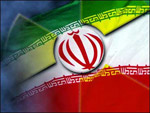 Washington Post – Editorial: The flurry of initiatives and threats launched by Iran in the last couple of weeks may betray panic by the regime as it faces a crumbling economy and mounting pressure from the West. The measures are insubstantial; the threats implausible.
Washington Post – Editorial: The flurry of initiatives and threats launched by Iran in the last couple of weeks may betray panic by the regime as it faces a crumbling economy and mounting pressure from the West. The measures are insubstantial; the threats implausible.
The Washington Post
The Post’s View
By Editorial Board
 THE FLURRY of initiatives and threats launched by Iran in the last couple of weeks may betray panic by the regime as it faces a crumbling economy and mounting pressure from the West. The measures are insubstantial; the threats implausible. For example, a tour by President Mahmoud Ahmadinejad of Latin America, limited to Venezuela and its allies, serves mainly to underline Iran’s isolation, since regional powers such as Brazil, Mexico and Argentina are not on his itinerary. A threat to close the Strait of Hormuz is hollow; the U.S. Navy could unquestionably reopen it. A death sentence imposed Monday on a U.S. citizen and former Marine is despicable, but most likely it won’t be carried out.
THE FLURRY of initiatives and threats launched by Iran in the last couple of weeks may betray panic by the regime as it faces a crumbling economy and mounting pressure from the West. The measures are insubstantial; the threats implausible. For example, a tour by President Mahmoud Ahmadinejad of Latin America, limited to Venezuela and its allies, serves mainly to underline Iran’s isolation, since regional powers such as Brazil, Mexico and Argentina are not on his itinerary. A threat to close the Strait of Hormuz is hollow; the U.S. Navy could unquestionably reopen it. A death sentence imposed Monday on a U.S. citizen and former Marine is despicable, but most likely it won’t be carried out.
Then again, all this futile activity could also be coldly calculated. It could be a smoke screen for the one serious step Iran has taken, which is the launching of uranium enrichment at a new plant buried under a mountain. The Fordow facility, near the city of Qom, was discovered by the West in 2009 as construction neared completion. For a time afterward it was dormant. Now, however, Iran has begun using it for a particularly provocative form of uranium processing. Using material already enriched to the level needed for nuclear power, it is employing centrifuges to raise the enrichment level to nearly 20 percent.
Iran claims it needs this more enriched uranium for a research reactor. But it has already produced enough of the material to fuel the reactor for five years. Moreover, it cannot legitimately use the enriched uranium, because it lacks the capacity to convert it into fuel rods. The opening of Fordow represents the launch of an Iranian plan to triple this form of uranium enrichment — and to do so in a facility that may be nearly invulnerable to attack from the air. When uranium is enriched to 20 percent, 80 percent of the processing needed to produce bomb-grade material is complete. So if it goes through with its plan, Iran could have enough of the 20 percent material by the end of this year to produce a bomb core very rapidly — perhaps even between visits of U.N. inspectors.
In short, the new Fordow operation crosses another important line in Iran’s advance toward a nuclear weapons capability. Was it a red line for Israel or the United States? Apparently not, for the Obama administration at least. In a television interview Sunday, Defense Secretary Leon Panetta said: “Our red line to Iran is: do not develop a nuclear weapon.” He asserted that Tehran was not trying to develop a weapon now, only “a nuclear capability.” The Revolutionary Guard, which controls the nuclear program, might well take that as a green light for the new enrichment operation.
In the meantime, the recent flurry of Iranian threats has had the intended effect of prompting a new chorus of demands in Washington that the United States and its allies stop tightening sanctions and instead make another attempt at “engagement” with the regime. The Ahmadinejad government itself reportedly has proposed new negotiations, and Turkey has stepped forward as a host. Almost certainly, any talks will reveal that Iran is unwilling to stop its nuclear activities or even to make significant concessions. But they may serve to stop or greatly delay a European oil embargo or the implementation of sanctions on the central bank — and buy time for the Fordow centrifuges to do their work.
This doesn’t mean that the Obama administration should reject further dialogue, or take military action. It does mean that every effort must be made to intensify sanctions — and in particular to stop, as the administration is trying to do, Iranian sales of oil everywhere in the world. Iran may be feeling some economic pain, and it may be isolated. But its drive for nuclear weapons continues.


